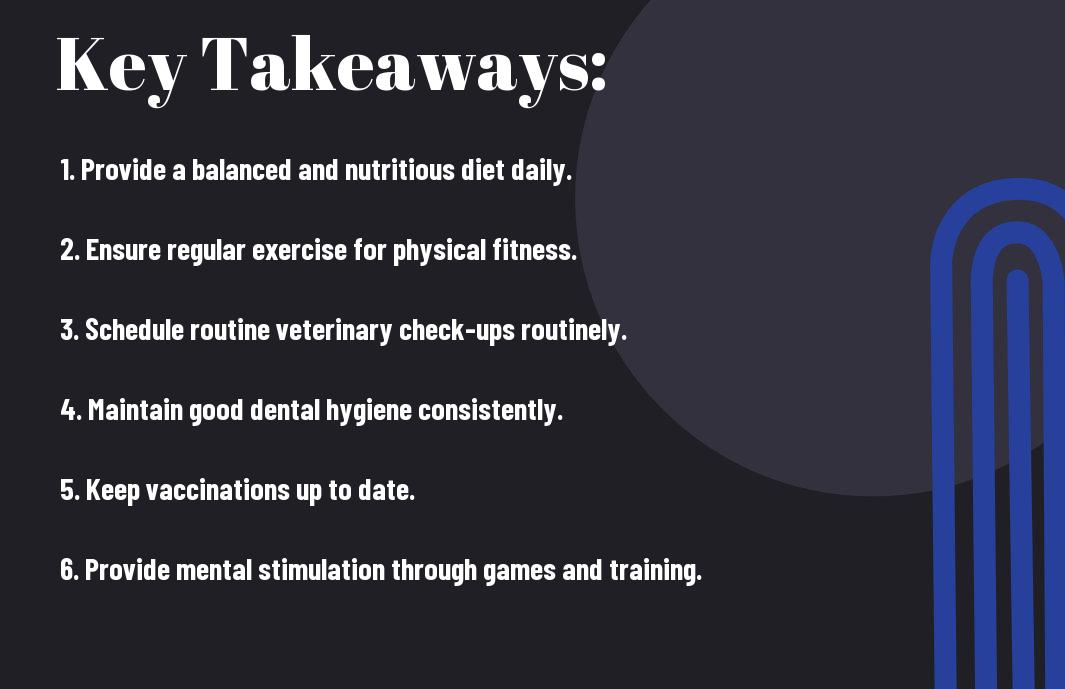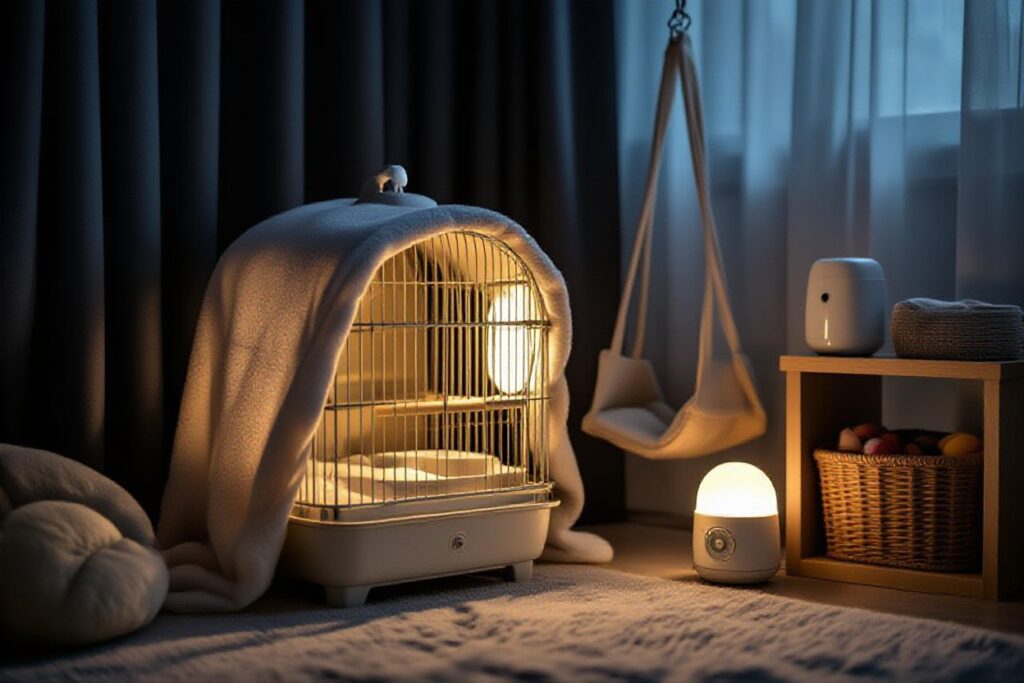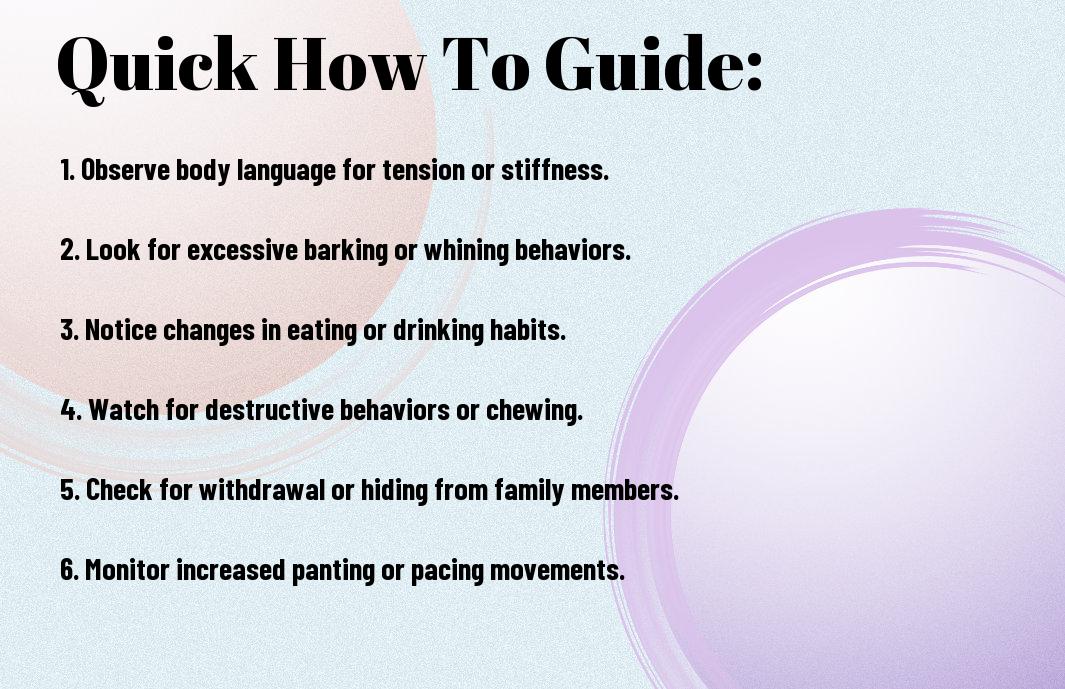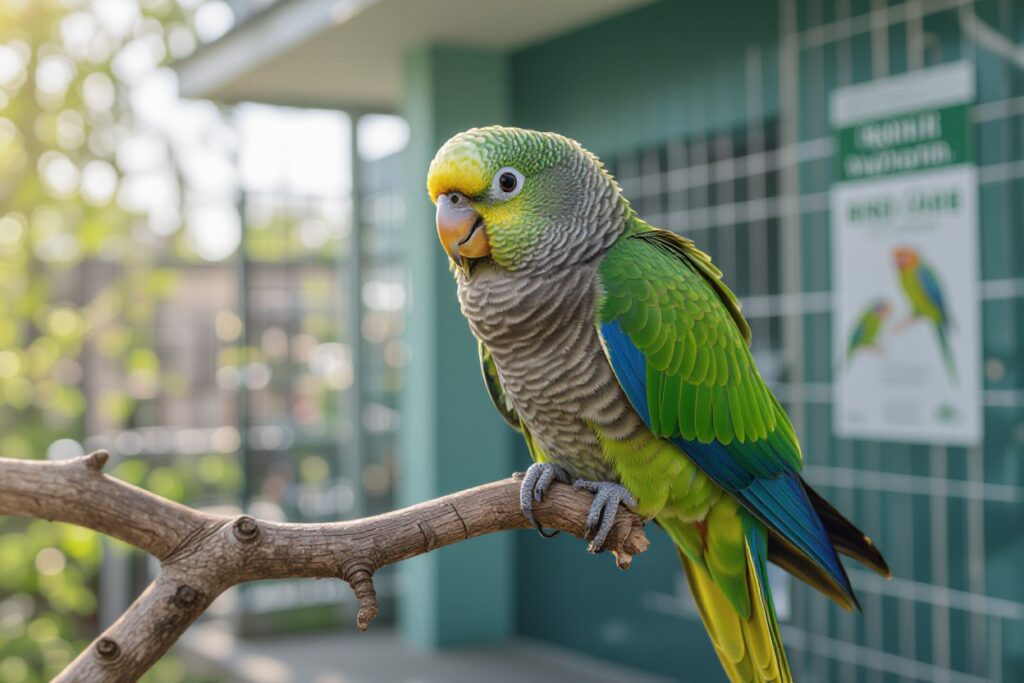Many pet owners underestimate the impact of stress on their feathered friends. Understanding your bird’s emotional well-being is crucial for preventing dangerous health issues that may arise from anxiety. You can create a calm environment by recognizing stress triggers and implementing strategies to alleviate them. From providing enriching activities to ensuring a stable routine, you can make a positive difference in your bird’s life and well-being. In this post, you’ll discover effective methods to help your bird cope with stress and thrive in a peaceful atmosphere.

Understanding Stress in Birds
For many bird owners, recognizing the signs of stress in their feathered friends is crucial for maintaining their overall well-being. Just like any other pet, birds can experience stress, which can impact their health and behavior. Understanding what causes your bird to feel anxious or overwhelmed is the first step toward helping them cope effectively. Identifying these factors will allow you to create a more peaceful environment and ensure your bird remains healthy and happy.
Identifying Common Stress Factors
Stress in birds can stem from various sources in their environment. Some common stress factors to look out for include:
- Sudden changes in their environment, such as new furniture or loud noises
- Social interactions that are too overwhelming, including exposure to other pets or people
- Health issues that may cause discomfort, making your bird more irritable
- Insufficient mental stimulation, leading to boredom and anxiety
- Temperature fluctuations that could cause a feeling of insecurity
After identifying these factors, you can begin to implement strategies to reduce stress and provide a calming sanctuary for your bird.
Behavioral Signs of Stress in Birds
An important aspect of handling stress in birds is recognizing the behavioral signs that indicate your pet is feeling uncomfortable. Birds are known to display various behaviors when they are stressed, such as excessive squawking, feather plucking, or changes in eating habits. These signs are often subtle but can become pronounced if stress levels are not addressed promptly.
With close observation, you may notice that your bird becomes more withdrawn, avoiding social interaction or spending excessive time in the corner of its cage. Additionally, watch for signs like changes in vocal patterns, which can indicate that your bird is feeling anxious or threatened. Important behaviors to note include sudden aggression, changes in droppings, or a constant state of alertness. Understanding these signs allows you to take actionable steps for creating a nurturing environment for your bird while ensuring their emotional needs are met.
Tips for Reducing Stress
Even the most well-adjusted birds can experience stress in their lives. As a caring bird owner, there are several strategies you can implement to help your feathered friend cope with stress effectively. Below are a few tips to consider:
- Create a calm environment
- Provide proper nutrition for stress relief
- Engage your bird with activities to distract and entertain
Creating a Calm Environment
Environment plays a critical role in your bird’s overall well-being. To reduce stress, ensure that their living space is free from loud noises, sudden movements, or other disturbances. This can mean moving their cage to a quieter location of your home where they can feel safer and more at ease. Consider providing a small perch or hideaway where your bird can retreat when they feel anxious. Consistency is key; try to keep their environment predictable and comforting.
In addition to creating a quieter atmosphere, it’s also vital to monitor the companionship your bird has with people and other pets. While social interaction can be beneficial, too much contact can lead to anxiety. Make sure that your bird has designated times for play and interaction, ensuring they have their own space to relax without feeling overwhelmed by attention.
Proper Nutrition for Stress Relief
If you want your bird to cope better with stress, focusing on its diet can have a significant impact. A balanced diet rich in vitamins, minerals, and vital fatty acids is crucial for your bird’s mental and physical health. Incorporate foods that are known to be calming, such as dark leafy greens, seeds, and whole grains. These foods not only provide vital nutrients but can also promote feelings of calmness in your pet.
To enhance your bird’s dietary plan, consider consulting with your veterinarian, who may suggest specific calming supplements designed for avian species. Also, ensure that your bird has ample access to fresh water and a diverse selection of safe fruits and vegetables, which can contribute to a more relaxed state and reduce stress-related behaviors.
Engaging Activities to Distract and Entertain
Nutrition is not the only factor in your bird’s emotional well-being; it is equally vital to provide engaging activities to keep their minds stimulated. Boredom can lead to stress and destructive behaviors, so offer a variety of toys, puzzles, and foraging opportunities. Rotate different toys regularly to maintain their interest and encourage exploration and play.
Entertain your bird with interactive games that challenge them mentally. Activities such as teaching new tricks or letting them interact with safe household items can help reduce stress levels significantly. Recall, a stimulated bird is often a happy bird, so the more fun you provide, the less anxious they may feel.

How to Support Your Bird’s Emotional Health
Keep in mind that your bird’s emotional well-being is as vital as its physical health. Understanding how to support your bird through challenging times will enhance its quality of life. By fostering a nurturing environment, you can reduce the impact of stress, which often manifests in behavioral issues such as feather plucking or excessive vocalization. Be mindful of, a balanced approach to emotional health includes providing social interaction, mental stimulation, and safe spaces for retreat and relaxation.
Importance of Social Interaction
With birds being inherently social creatures, social interaction plays a crucial role in their emotional health. Whether you engage with your pet through simple daily interaction or ensure it has companionship from another bird, the quality of these interactions significantly influences your bird’s happiness. Isolation can lead to feelings of loneliness and distress, so making time to communicate with your bird or considering companionship can alleviate much of this turmoil.
Additionally, when you provide your bird with opportunities to interact with various people, you promote its social skills and confidence. Introducing your bird to new experiences and ensuring it has a safe retreat when needed can foster a well-adjusted pet. Implementing a routine that incorporates playtime and bonding sessions not only helps in easing your bird’s stress but also strengthens your relationship.
Role of Enrichment in Stress Management
While social interaction is important, enrichment is equally critical to your bird’s emotional health. Enrichment activities such as providing toys, puzzles, and varied environmental stimuli engage your bird mentally and physically, reducing boredom and anxiety. By offering a range of items, you invite opportunities for exploration and play, which is vital in alleviating stress.
It is important to understand that your bird requires mental challenges and engaging activities to help maintain its emotional balance. Introducing new toys and rotating them regularly can provide your bird with a sense of novelty and excitement, staving off potential boredom. Make sure to include interactive and stimulating toys that encourage your bird to explore, forage, and problem-solve, as these activities can greatly diminish stress levels and promote overall well-being.

Implementing Strategies for Long-Term Relief
To help your bird cope with stress effectively, it is important to implement strategies that promote long-term relief. Consistency in your pet’s environment and routine can significantly aid in reducing anxiety. By understanding your bird’s unique needs and preferences, you can create a safe and comfortable setting that minimizes stressors and supports their emotional well-being.
Regular Health Check-ups
An often-overlooked aspect of managing your bird’s stress is ensuring they are in good health. Regular health check-ups are vital, as hidden health issues can create significant stress for your feathered friend. Be sure to schedule visits with an avian veterinarian who can assess your bird’s physical condition and identify any underlying medical problems. Early diagnosis is key, as untreated health issues can lead to chronic stress and a decline in your bird’s overall happiness.
Additionally, monitor your bird’s behavior and physical appearance between check-ups. Changes in eating habits, feather condition, or social interactions can signal potential health concerns. By being vigilant and proactive about your bird’s health, you can address issues before they escalate and ensure your pet feels secure and comfortable in their environment.
Gradual Transitioning to New Environments
Little changes in your bird’s surroundings can lead to significant stress if not managed correctly. When introducing your bird to new environments, or even small changes within their current habitat, it’s crucial to take a gradual approach. This means allowing your bird ample time to adjust to each alteration before moving on to the next. For example, if you’re rearranging their cage, start by moving just one item at a time and observe how they react before proceeding.
Checkups for transitioning your bird can include ensuring that the new environment is as close to their preferred routine as possible. Familiar objects, soothing sounds, and a neutral setup can help ease the transition. By implementing these gradual changes, you not only give your bird the time they need to acclimate but also minimize the potential for overwhelming them, ultimately leading to a happier and more relaxed pet.
Final Words
Drawing together the various strategies outlined, it’s crucial for you to recognize the signs of stress in your bird and take proactive steps to mitigate it. By providing a stable environment, enriching activities, and fostering a strong bond through positive interaction, you can significantly enhance your bird’s emotional well-being. Always remember to observe your bird’s behavior and make adjustments as needed. Your attentiveness and understanding play a vital role in ensuring your feathered companion feels secure and loved.
Additionally, don’t hesitate to seek professional guidance when facing challenges that seem insurmountable. Veterinary advice, particularly from avian specialists, can offer tailored solutions to address your bird’s specific needs. By making a concerted effort to create a calm and stimulating habitat, you can help your bird navigate and cope with stress better. Ultimately, your commitment to their mental and emotional health is the key to fostering a happy and healthy avian companion.
FAQ
Q: What are some common signs that my bird is experiencing stress?
A: Birds can exhibit a variety of behaviors when they are stressed. Common signs include excessive vocalization, feather plucking, aggressive behavior, changes in eating habits, or becoming overly lethargic. Your bird may also display self-destructive behaviors, such as biting at their own feathers or cage bars. It’s important to observe your bird’s behavior regularly to identify any changes that may indicate stress.
Q: How can I create a more comfortable environment for my stressed bird?
A: Creating a safe and comfortable environment is crucial for helping your bird cope with stress. Start by ensuring that their cage is placed in a quiet area away from loud noises and sudden movements. Provide plenty of hiding spots and perches at different heights to help them feel secure. Engage them with toys that encourage mental stimulation and exercise but avoid overwhelming them with too many options at once. Additionally, consider playing soft music or using a white noise machine to create a calming atmosphere.
Q: What are some activities or techniques I can use to help my bird reduce stress?
A: There are several activities and techniques that can help your bird cope with stress. Regular interaction and socialization are key; spend time talking to or gently handling your bird to provide comfort. Incorporate training sessions using positive reinforcement techniques to build their confidence and strengthen your bond. Provide opportunities for physical exercise through flight or playtime outside of their cage. Lastly, consider incorporating calming products, such as bird-safe herbal supplements or an anxiety-reducing pheromone diffuser, after consulting with a veterinarian.










